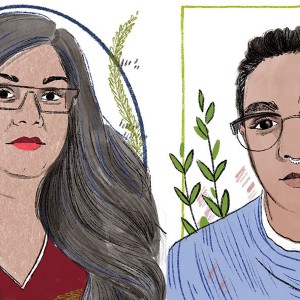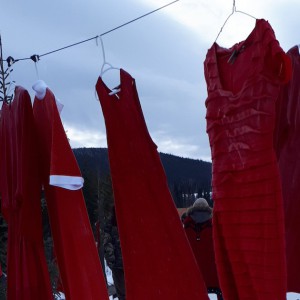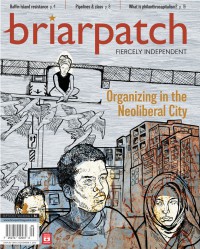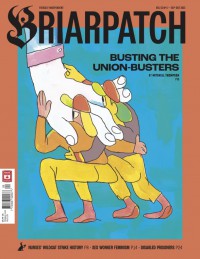
Prison unions
How a public-sector union became the biggest cheerleader for jail-building in Manitoba; three case studies on reviving Indigenous ecological practices; pension funds' investment in the housing crisis; abuse at humanitarian aid organizations; transformative justice; the false conflict between Indigenous sovereignty and migrant justice; and more.
Add To Cart $6.95
-
 Magazine
Magazine“Defund the police” means “defund the police”
It’s a demand that’s easy to understand and easy to fight for, which is important because we’ll need a lot of people to help us win it.
-
 Magazine
MagazineInvested in crisis
Pension funds control billions of dollars of workers’ money. But when pension funds are invested in real estate, are they really working for workers?
-
 Magazine
MagazineDecolonizing ecology
From traditional fishing technologies to bringing back the bison, Indigenous ecological practices are our best bet to save the planet – and ourselves
-
 Magazine
MagazinePrison unionism
How a public-sector union became the leading advocate of jail-building in Manitoba – and laid the foundation for the province’s incarceration disaster.
-
 Magazine
MagazineWhat do we do when humanitarians are the disaster?
AidToo is exposing abuses of power at aid organizations. Two stories from Canadian NGOs show what it takes to blow the whistle, and how the industry responds to accusations.
-
 Magazine
MagazineBreaking the cycle of harm
To avoid police and prisons, more leftists are turning to accountability processes to repair harm. But fractious accountability processes are tearing communities apart. How might returning to transformative justice’s Black feminist roots help break the cycle?
-
 Magazine
MagazineA world of many worlds
Is the idea of Indigenous sovereignty really in conflict with the well-being of migrant communities? A review of “Home Rule: National Sovereignty and the Separation of Natives and Migrants.”
-
 Magazine
MagazineFeminism against resource extraction
By remaining silent during the invasion of Wet’suwet’en land, settler feminists in Canada have risked both complicity in this violence and irrelevance in a women’s movement that is global in scope.







